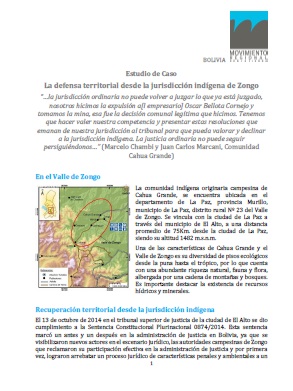Decreto Nº 574 - Reglamentación de la Ley Nº 426, Ley Integral del Aborigen.
El presente Decreto tiene por objeto reglamentar la Ley Integral del Aborigen. En primer lugar el Decreto define a las comunidades aborígenes como organizaciones tradicionales, es decir grupos indígenas que funcionan como comunidades en un espacio territorial determinado conforme a sus usos y costumbres históricas.




